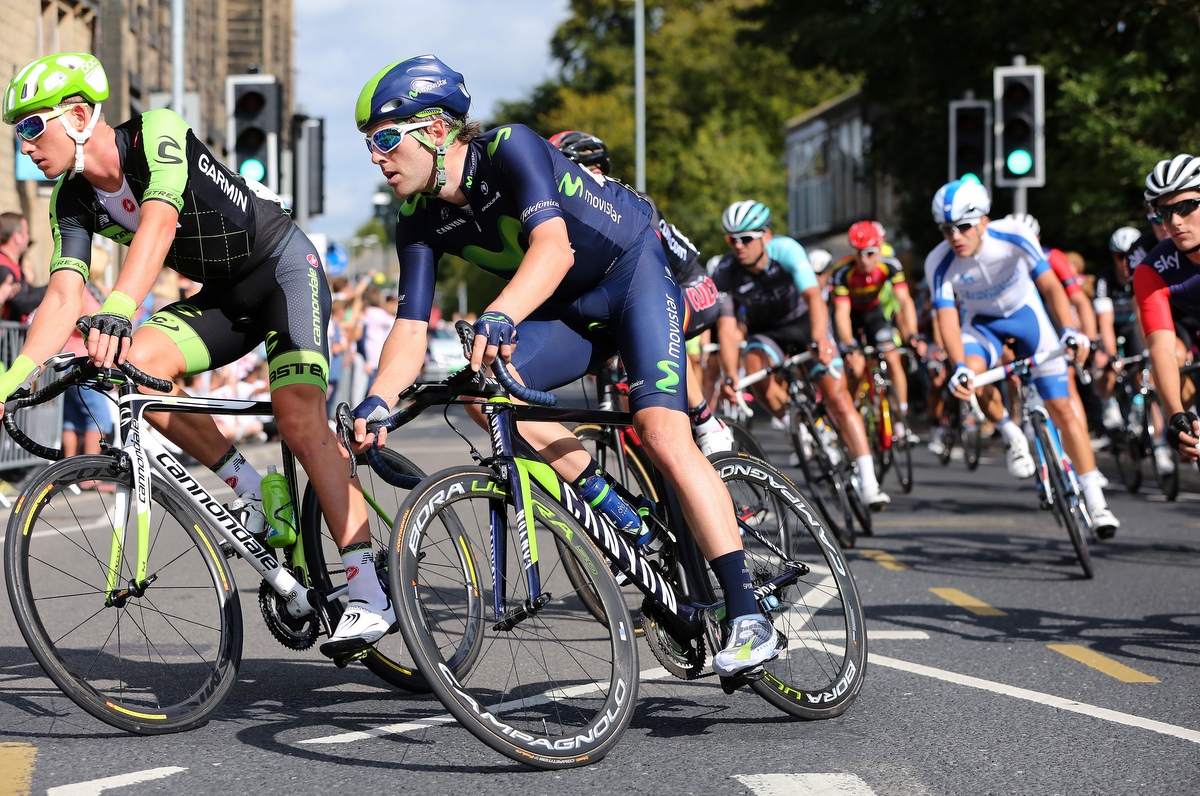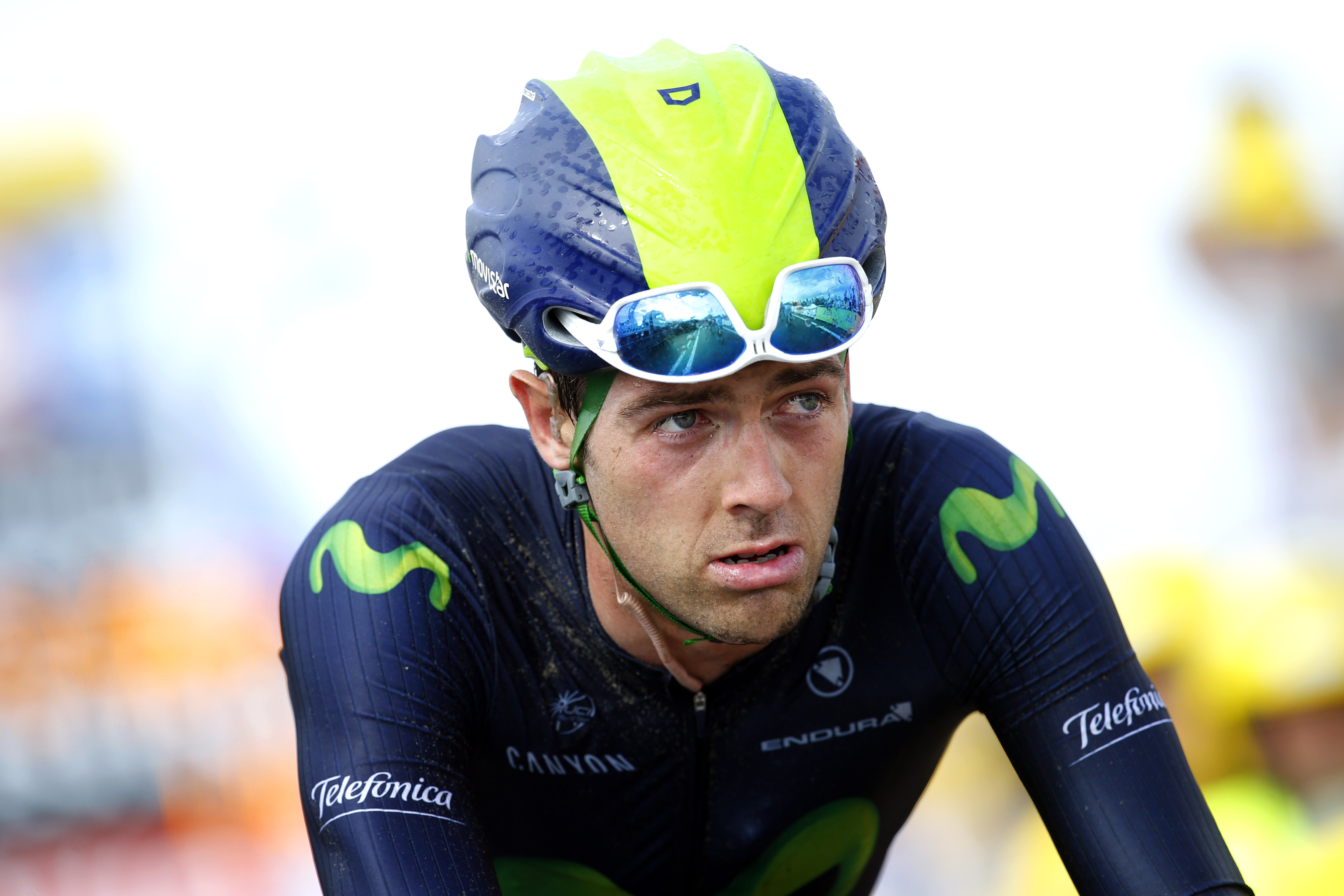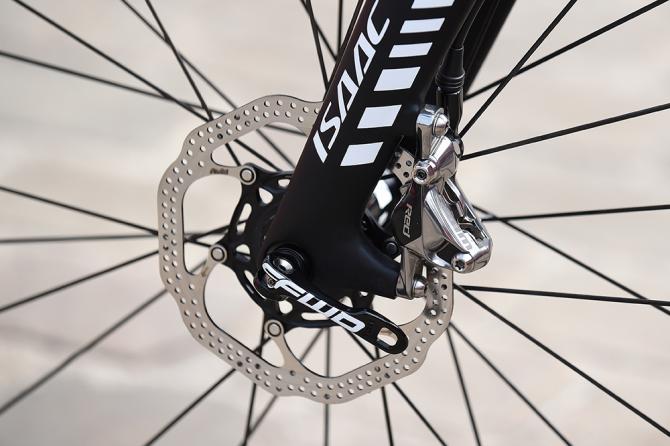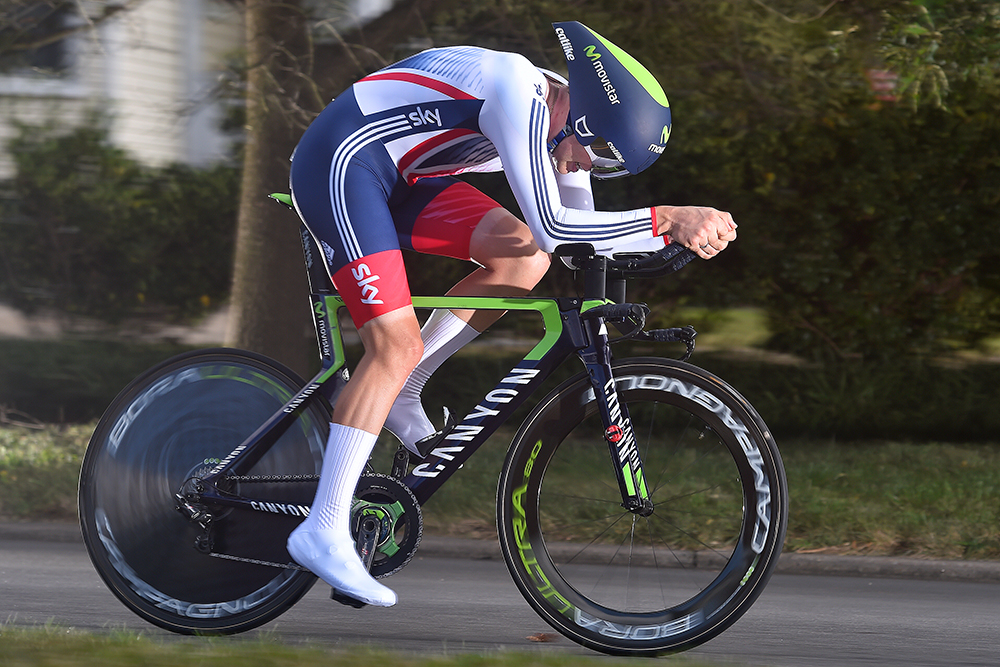Dowsett fears disc brakes will cause serious injury
Movistar rider feels the risk of adding 'two blades' to bikes is unjustified





Alex Dowsett has expressed reservations about the planned trial and incorporation of disc brakes in professional road cycling, chief among his concerns being the risk of injury from what he sees as 'blades'.
The UCI announced this week a testing phase for disc brakes in 2016, with a view to them becoming fully legal for the start of the 2017 season. Dowsett, who has before felt the full force of a chainring in his back in a crash, feels that the move will only heighten the risk of serious injury in the event of multiple-rider crashes.
“In the mass pile-ups where there are bodies and bikes everywhere, we’re very vulnerable. And to put two more blades, effectively, on the bike, which could be glowing hot due to heavy braking before a crash, I think we’re going to see an injury, something serious, and that may be when they pull the disc brakes idea back,” the Movistar rider told Cyclingnews.
"These are just my opinions from being in and seeing crashes on the road. I really hope I’m wrong and I hope we can adopt disc brakes. Because cycling needs to move forwards – it always needs to move forwards – but if it’s an unnecessary move forwards that's going to put our safety at more harm than it already is, then it shouldn’t be taken. It would be a crying shame if it takes someone to have a serious injury for the idea to be pulled back."
There are numerous angles to the debate on disc brakes, with manufacturers pushing for progress and teams looking for performance gains, while others express concerns, primarily over safety. Cyclingnews has provided a dissection of the issue, which you can read here, and spoken to manufacturers, the CPA rider's association, and three-time Grand Tour winner Vincenzo Nibali about their thoughts.
Dowsett's concerns chime with Nibali's, with the British rider echoing the Italian's call for the discs to be protected in some way and sharing his reservations over the potential danger of some riders having discs and others not, consequently giving them different braking powers and patterns.
Dowsett's main argument is based on a risk-reward paradigm. The reward in this case, he believes, is not significant enough to warrant the taking of the risks outlined above, the logic being that the benefits offered by disc brakes would only be worthwhile if the current braking system was patently deficient.
Get The Leadout Newsletter
The latest race content, interviews, features, reviews and expert buying guides, direct to your inbox!
“I’ve never been short of braking power on a road bike,” Dowsett says. "My belief is that on a road bike you lose traction between tyre and road before you lose braking power, so the wheels will lock up before you think you physically need to pull the brakes any harder.
"There’s a video from the Tour – stage 5 I think – in the wet, everyone’s grabbing the brakes and people are going down. They’re not hitting people – they’re grabbing brakes and the front wheels are locking up and they’re coming down before they’ve actually hit anyone. What you can see from that is that, certainly in the wet, you’re not short of braking power – if anything you’ve got a bit too much. In the dry, I don’t feel like I’ve ever been short.
"We’ve got brakes that work well now – do we need to go that extra step, with the risk of perhaps casuing some serious injury?"
To read Cyclingnews' in-depth analysis of the issue of disc brakes in the peloton, click here.
Patrick is a freelance sports writer and editor. He’s an NCTJ-accredited journalist with a bachelor’s degree in modern languages (French and Spanish). Patrick worked full-time at Cyclingnews for eight years between 2015 and 2023, latterly as Deputy Editor.
